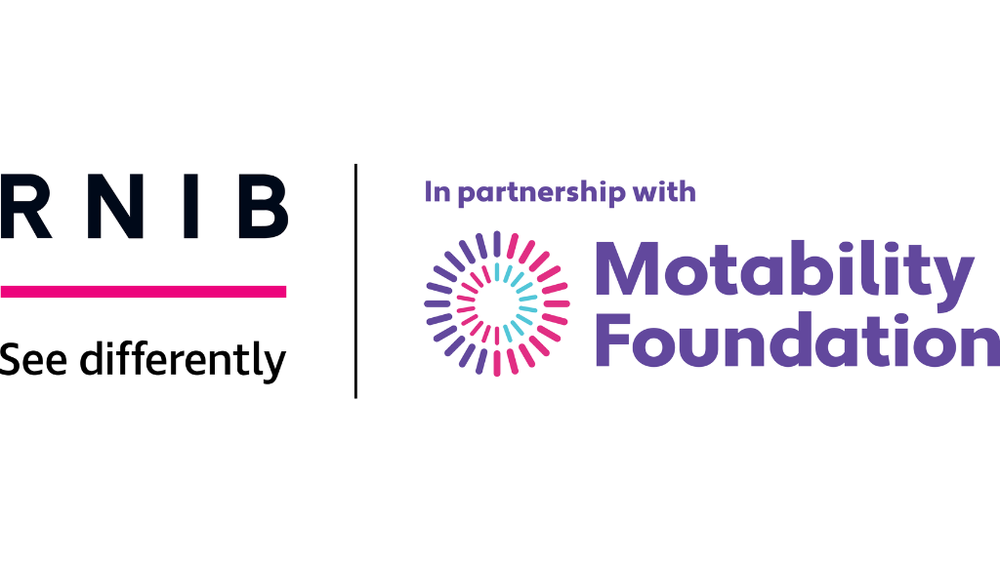Travel Well With Tech
For many people, using a smartphone, app or GPS to travel confidently is second nature. But for people living with sight loss, the experience is often very different.
In the UK, two-thirds of blind and partially sighted people feel unable to make all the journeys they want, whether on foot or by public transport.
In response, RNIB and Motability Foundation created Travel Well with Tech – an innovation-led project designed to explore and address the biggest barriers to travel for people with sight loss.
This project set out to identify accessible, technology-driven solutions that would enable more blind and partially sighted people to plan, make and enjoy their journeys.
Following extensive research and field-testing supported by people with lived experience, we’re proud to share this Phase One summary report, marking a major milestone in this multi-year initiative.

An older woman talking to a bus driver while showing him a note.
Phase One Summary
Phase One explored the emotional and physical barriers to technology and travel across a broad spectrum of people, from hesitant travellers and tech novices to more confident users, including those who regularly use technology to help them.
What became clear was that motivation, awareness, knowledge, and capability don’t always align. By observing people on actual journeys and introducing new routes, transport modes or technology, we saw how important strong adaptability and problem-solving skills are when travelling. This reinforced the need for mindset and attitude to be key considerations when introducing technology into travel.
During workshops, blind and partially sighted participants imagined ‘future’ travel technologies. Yet almost all of these already exist. The main barrier to considering and using technology to travel better proved to be awareness and confidence, rather than a gap in the current technology offer.
Key Highlights
Phase One identified several key insights:
- Bridging the travel gap means bridging the learning gap. Technology only becomes empowering when people are supported to discover, learn, and choose what works for them.
- Accessible information and digital inclusion are critical for planning, making and enjoying more journeys for blind and partially sighted people.
- Understanding each individual’s starting point, preferred learning styles and pace of learning helps people define their own success and remain in control of their learning journey.
- No piece of technology, training programme or solution is ‘one size fits all’. Supporting blind and partially sighted people to build confidence in making journeys starts by understanding their needs.
- Building knowledge, motivation and choices will have as much impact as new technology itself.
- Accessibility doesn't end with accessible technology. Awareness, training and guidance are key in supporting more people to reap the benefits of assistive technology and gain confidence in making journeys.

A train at a station platform, with people walking down the platform.
What’s Next: Phase Two
Building on these findings, Phase Two will focus on creating solutions to overcome these barriers.
In collaboration with our lived experience network and external partners, Travel Well With Tech will prioritise, design and validate a set of prototype learning resources to address the highest priority gaps and deliver the broadest impact for blind and partially sighted people and their families.
These learning resources will encourage curiosity, increase awareness and build skills through discovery, while enabling and empowering pathways for continuous personal development.
About the Partnership
RNIB and Motability Foundation are working in partnership on several innovation-led projects aimed at addressing key accessibility, technology and travel barriers for people with sight loss.
This collaboration brings together the expertise, networks and resources of both organisations, alongside lived experience, to shape future technologies, transport systems and enhance travel experiences.
Together, we want to ensure that accessibility and inclusivity feature at the heart of transport investment and ecosystems. We’re committed to transforming how, when and where people with sight loss and disabilities choose to travel.

RNIB and Motability Foundation logos





